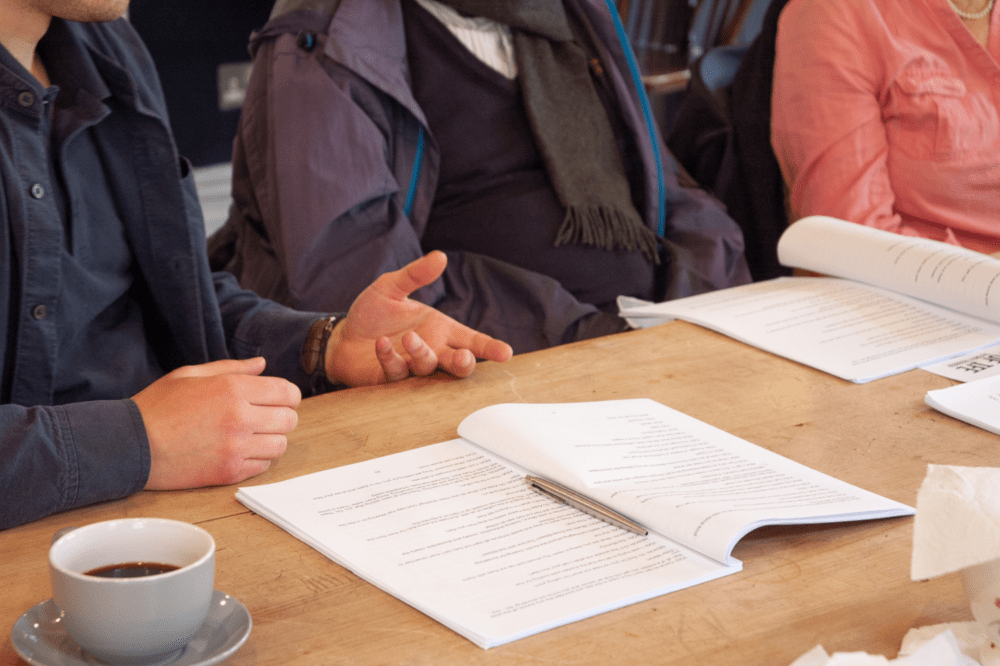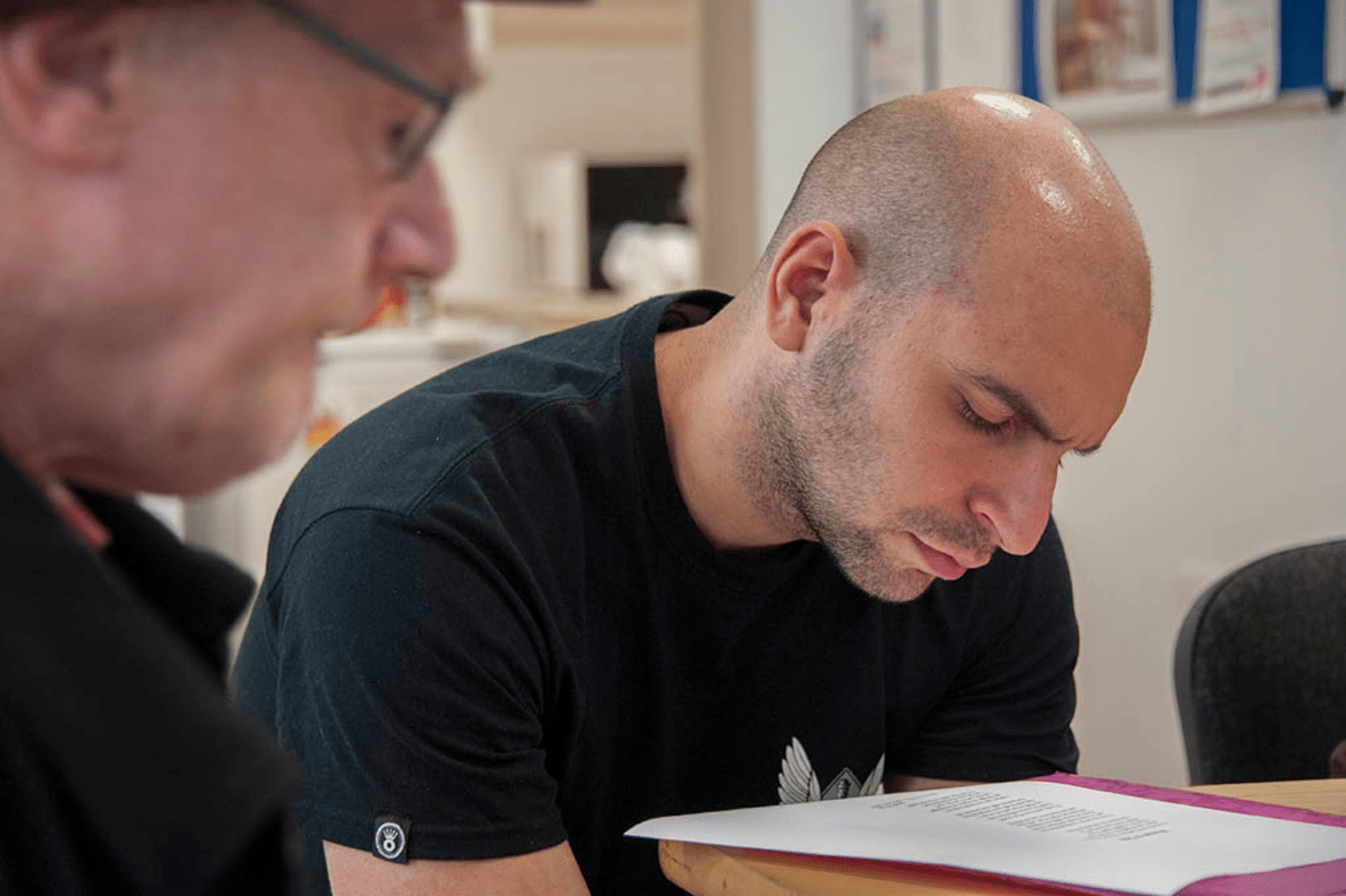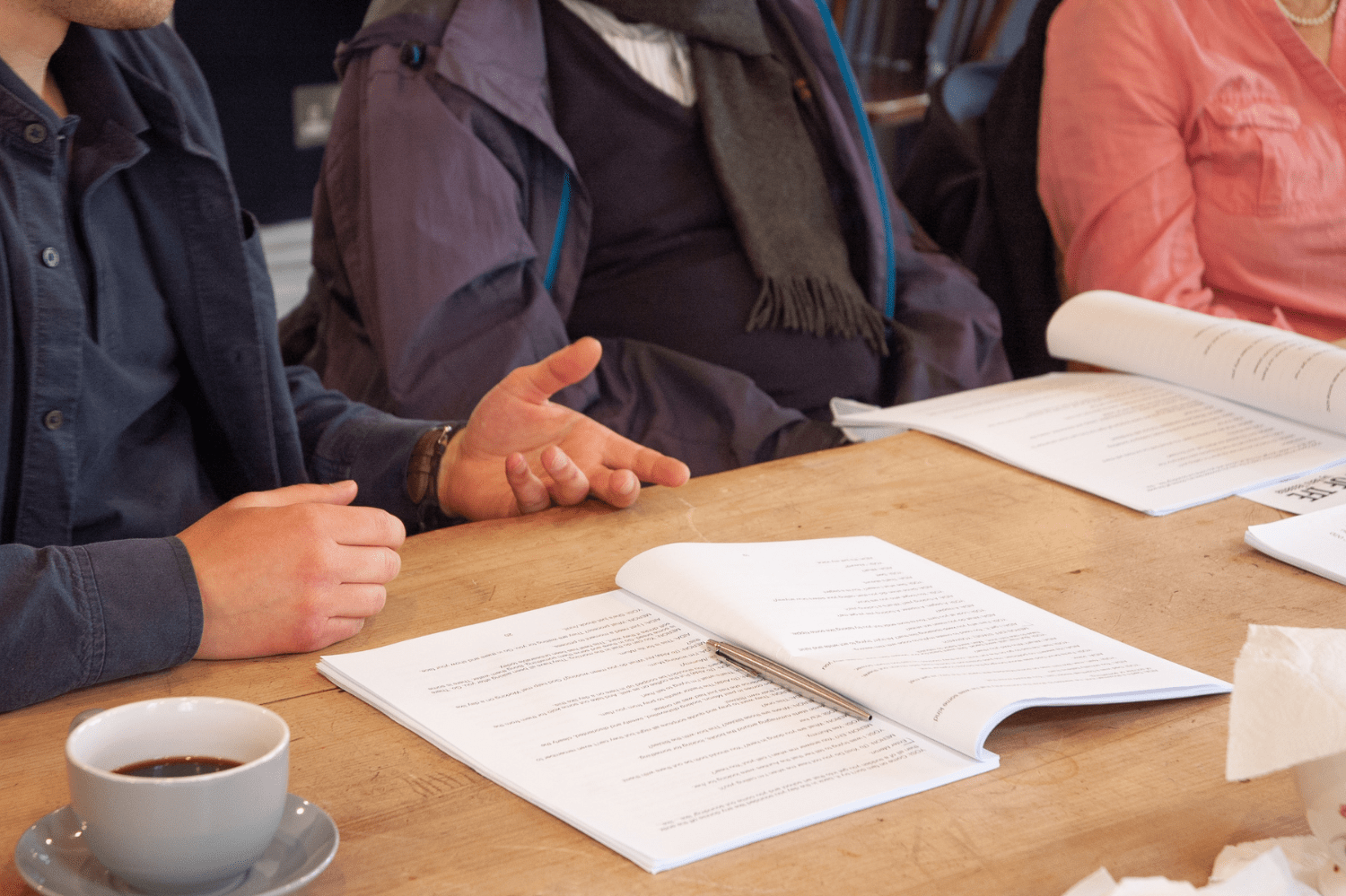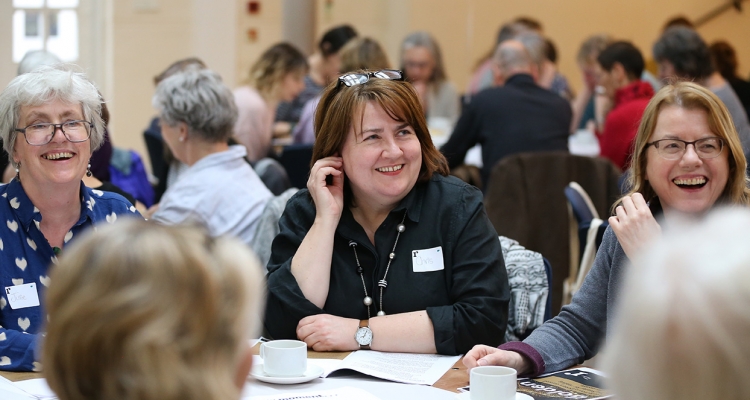‘Out of all the groups we do, this is the one where they feel most together… They can show their vulnerability – I don’t think we have that in any other group.’ HMPSS Officer on Shared Reading
-
83%
I’ve grown more confident since taking part in this activity
-
85%
This activity helps me feel better
-
71%
What we’ve read helps me to understand myself better
-
88%
This activity helps me to understand other people better
-
89%
This activity helps me to connect with others in a deeper way
Led by a trained facilitator, Shared Reading connects people to the human experience found in the written word, and each other, through inclusive, welcoming groups. Participants control their degree of involvement in a safe, social space where people feel valued and at home. Everything is read aloud, easily navigating differences in literacy and confidence within groups. This work is rooted in two decades of practice, where literature is made available in everyday places for profound personal reflection. To this aim, we currently work with a range of partners, including NHS Trusts and MoJ- funded Psychologically Informed Planned Environments (PIPEs) across the country to deliver Shared Reading groups on inpatient wards, prison-based units and community settings.
Impact
Shared Reading can contribute to a sector in support of reform, by encouraging and equipping offenders to explore their experiences in a safe and creative way.
Through Shared Reading, group members get new, creative ways to tell their stories and imagine others. Wider research has shown that Shared Reading can be offered as alternative activity, follow-up or adjunct to Cognitive Behaviour Therapy (CBT) for people with mental health issues.
The Reader’s informal, weekly Shared Reading groups offer the opportunity for people to listen, empathise and share. In a supportive environment, staff and offenders work together, freed from roles and expectations. Shared Reading can function as part of health improvement, education and behaviour change programmes, as well as being enjoyed as an independent meaning-making activity.
In 2022, the Ministry of Justice and HM Prison and Probation Service published ‘An Evaluation of Shared Reading in PIPEs’. The research, carried out by University of Cambridge, identified the contribution that Shared Reading makes to the work of Psychologically Informed Planned Environments in prisons and described the ‘significant value’ of Shared Reading, with participating prison residents reporting ‘higher levels of wellbeing, hope, agency and self-efficacy, and interpersonal trust’ compared to their peers.
Our work to date has included:
- Category A, B and C, men, women and young people.
- A national contract to work in Psychologically Informed Planned Environments (PIPEs) as part of the Offender Personality Disorder (OPD) Pathway.
- All prisons in Northern Ireland.
- Our first ‘Through the Gate’ project for people returning to the community, piloted from 2019.
-
34
Criminal Justice Settings
-
64
Weekly Groups
Our Research
In October 2022 the Ministry of Justice and HM Prison and Probation Service published an independent evaluation of our Shared Reading work in PIPES (Psychologically Informed Planned Environments) carried out by Professor Alison Liebling and her team at the Institute of Criminology, University of Cambridge.
Shared Reading groups are offered weekly in all prison PIPEs and aim to provide opportunities for PIPE participants to engage socially, communicate more effectively, and make meaningful sense of themselves and others.
An Evaluation of a pilot study of a literature-based intervention with women in prison
This provides an insight into what women in prison can get out of Shared Reading, with quotes included from the perspective not only of the group members, but also the prison officers and the group leader at the time.

If you'd like to find out more about embedding Shared Reading into your service, get in touch:
Kate Bramhall, Criminal Justice Programmes Manager
katebramhall@thereader.org.uk






